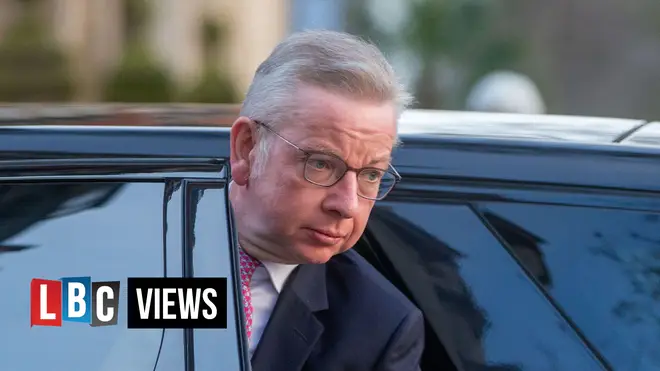
Oli Dugmore 4am - 7am
14 March 2024, 09:34

With all that is going on in the world, we need our leaders to be calm-headed, rational and making sensible decisions that bring us together as a society.
The Government’s new definition of extremism that is being announced today does precisely the opposite of that.
The new definition, announced today by Communities Minister Michael Gove, is a cynical move from the Government that is using a moment of uncertainty to create further division in society. Under the new definition, any group that falls under this wide umbrella would essentially be ‘blacklisted’ from talking to those in power or receiving state funding.
The problem is this definition – capturing any group it deems as ‘undermining democracy’ - is so unworkably broad it threatens everyone’s right to express themselves freely.
The wording is purposely wide and could inadvertently capture a whole host of other campaigners aside from those intended. That could be those worried about climate change to anti-war protesters.
To put the language in context - if this definition was around 100 years ago, it might have swept up the Suffragettes under its wording. If it was around 50 years ago, it’d have swept up anti-apartheid campaigners.
Far from defending democracy, it could stifle legitimate debate and prevent positive change – something that is really important in a healthy democracy.
We have in recent weeks and months seen a raft of provocative language from politicians and senior figures. At a time when incidences of antisemitic and Islamophobic hate crime are rising, politicians have routinely stirred the pot by demonising pro-Palestine marches, using racist language against communities, and have recently proposed bringing in even more anti-protest laws.
This new definition of extremism announced today is feeding into the wider culture of suppression of free speech by the Government and is setting a dangerous precedent for the future.
It’s incredibly undemocratic for a Minister – either now or in the future - to be able to blacklist any group or cause they personally don’t agree with.
The Government must not try to reduce our rights and freedoms for cheap political gain. Our democracy is far too important for that.
And it’s especially undemocratic to introduce this without any debate or consultation. Introducing new guidance in this way means that in the future, a Minister might alter this definition further, with the precedent set that it does not need Parliament to approve it.
If a Minister was to decide to change just two words of this definition in a couple of years time, they could do so without scrutiny and it could put a whole host of other groups at risk, such as those who the Government of the day simply decides it does not want to engage with.
LBC Views provides a platform for diverse opinions on current affairs and matters of public interest. The views expressed are those of the authors and do not necessarily reflect the official LBC position.
To contact us email views@lbc.co.uk